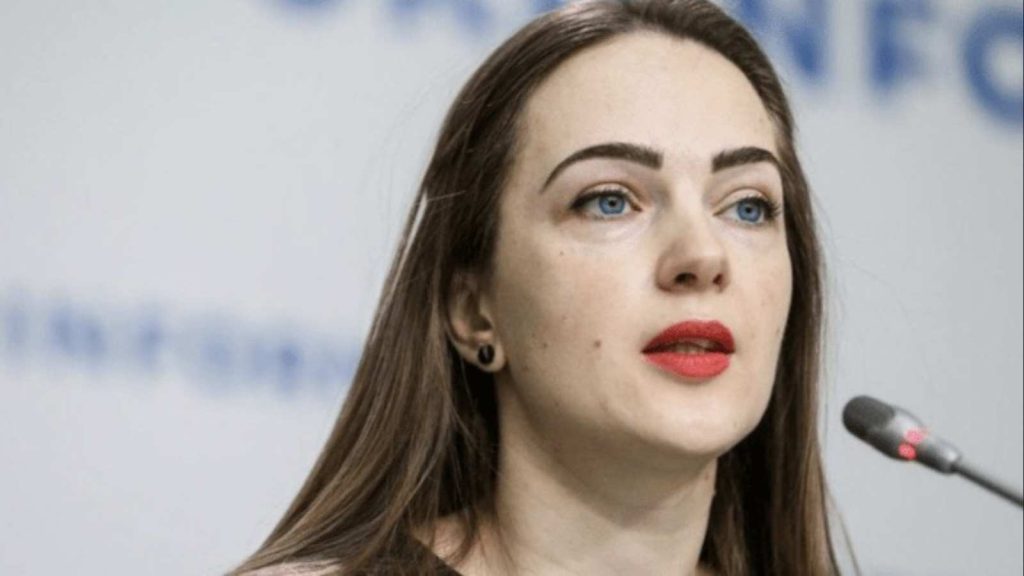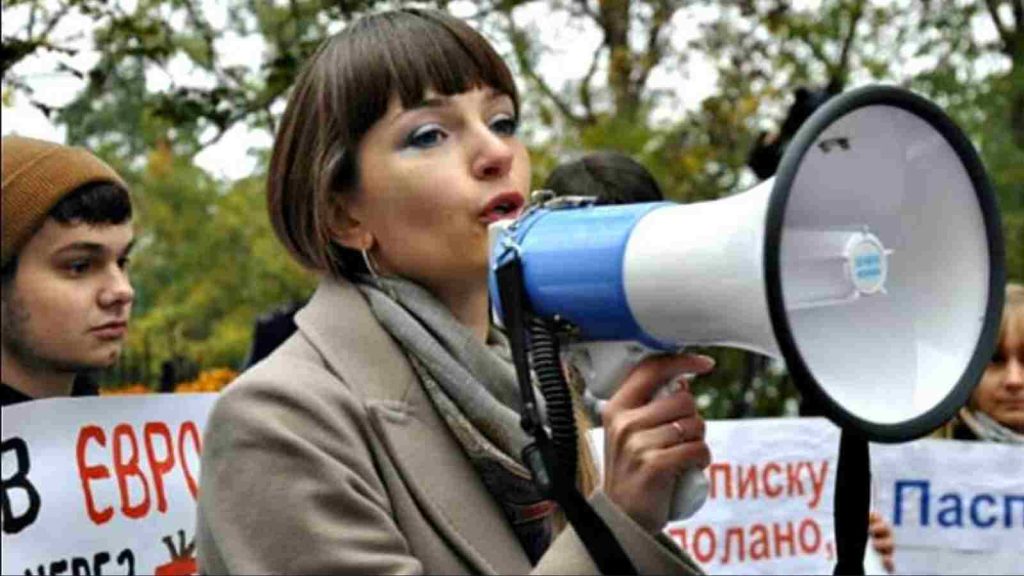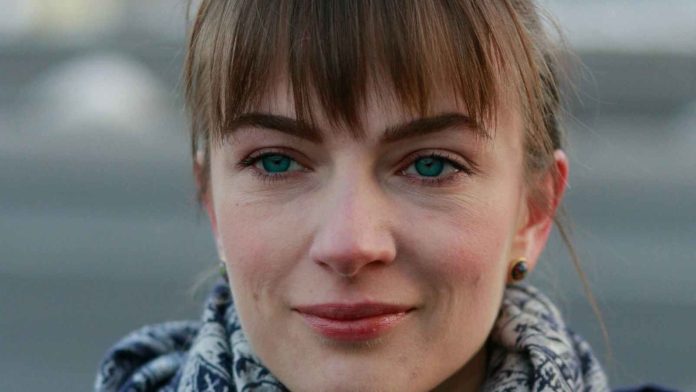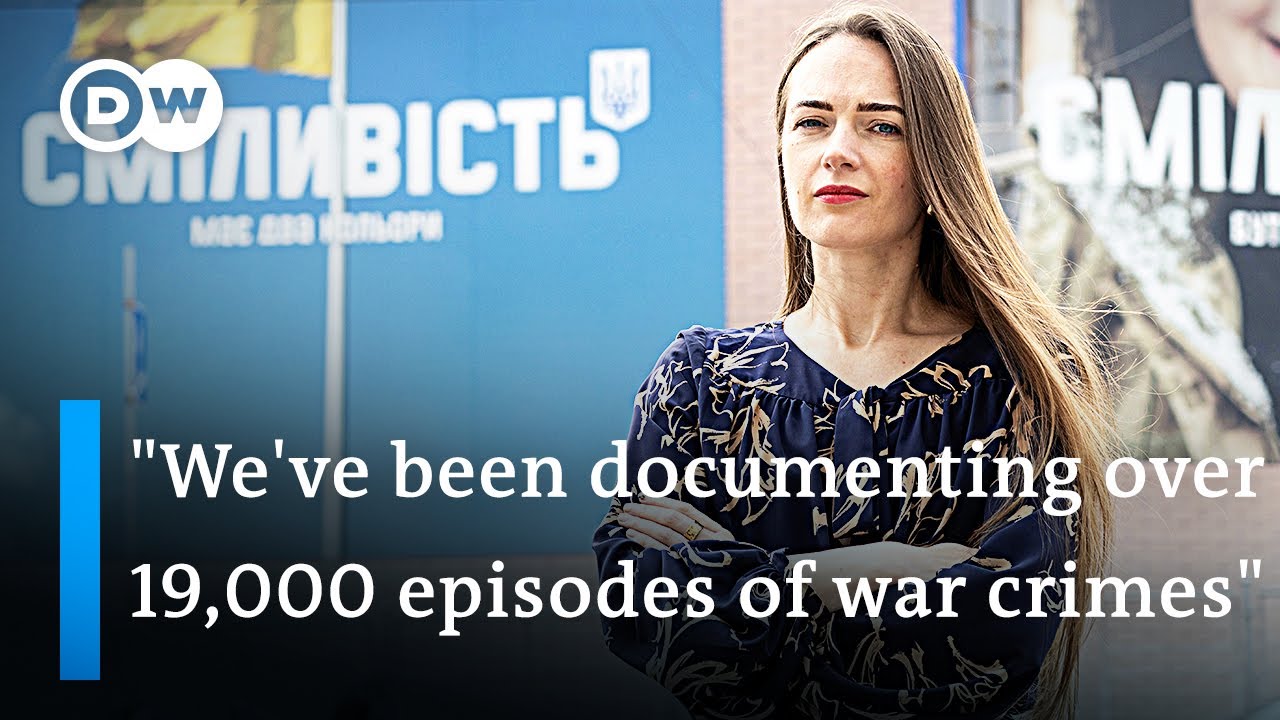Oleksandra Matviichuk is a Ukrainian human rights lawyer and civil society leader based in Kyiv. She heads the non-profit organization Centre for Civil Liberties and is an active campaigner for democratic reforms in her country and the OSCE region. The Ukrainian lawyer won the Nobel peace prize and she wants to use her platform to call for social rights.
She called for international action against Russian human rights violations immediately. The body she heads has patiently documented more than 21,000 examples of war crimes committed by occupying Russian forces since 2014, including many from after the invasion in February. Know more about what the Nobel Peace prize winner has to say about Russia’s invasion of Ukraine.
What Did Oleksandra Matviichuk Say About Russia?

Oleksandra Matviichuk in an interview with The Guardian complained: “I haven’t any legal instrument to stop the Russian atrocities” – no immediate way of bringing perpetrators to court. The criminality appears vast when listed. “After the large-scale invasion, we every day documented different kinds of war crimes, like intentional shelling of residential buildings, churches, hospitals, schools, the shelling of evacuation corridors,” Matviichuk says.
“We received requests for help from people in the occupied territories because they were abducted, tortured; we recorded sexual violence, extrajudicial killings.” Staff from the Centre for Civil Liberties were among those who travelled through Irpin, Bucha and towns and villages north-west of Kyiv after Russia abandoned its attempt to seize the city in March.
“I will remind you,” she says, that bodies were found lying uncollected in the streets, or dumped in mass graves. “And what was Putin’s response? He provided medals to the army unit that was staying in Bucha.” Russia, as governed now, shows a “genocidal character,” she argues. At first she admits the sheer emotional difficulty of taking in the trauma of individual cases, particularly understandable when her organisation deals with so many.
Read More: Who Is Alla Pugacheva? Why Is She Speaking Out Against Russian President Putin?
Russians Treatment Of Women

Matviichuk tells a story of a pregnant young woman severely beaten in Russian captivity after the war of 2014. “She begged for them to stop beating her because she’s expecting a baby. But she was told ‘you have pro-Ukrainian sympathies, and therefore your child has no right to be born’.”
Later, in a further insult, Matviichuk says, the woman’s captors agreed to free her if she told a Russian journalist that she was a sniper. However, Russians then “asked her to sit in a pose that her pregnancy was hidden” when being interviewed. These are stories that one might not want to dwell on but that cannot be swept aside.
“Because we have a huge material collected – 21,000 episodes of war crimes – we can be very clear that Russia used war crimes as a method of warfare,” she says – and that Russia has sought to subject Ukraine to a “psychological experiment” through “the immense pain of the civilian population”.
Matviichuk then refers, loosely, to controversial experiments from the 1960s in which dogs were subjected to electric shocks. “A dog was beaten with electricity every time it tried to eat, and resulted in the situation when this poor dog decided to die with a hunger but not try to survive,” she says. The phenomenon in which an animal or person gives up avoiding pain because it has been subjected to so much already is called, she says, “learned helplessness”.






